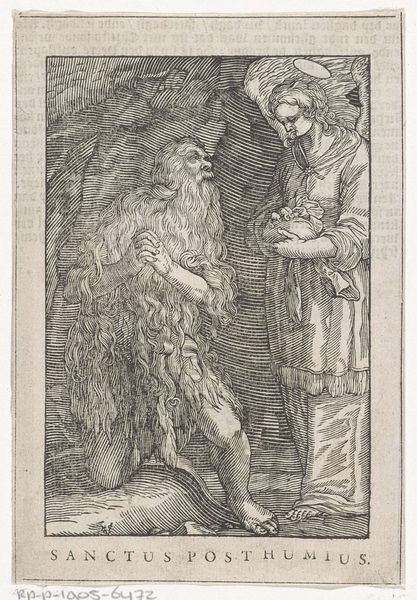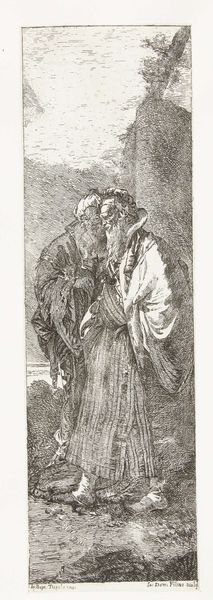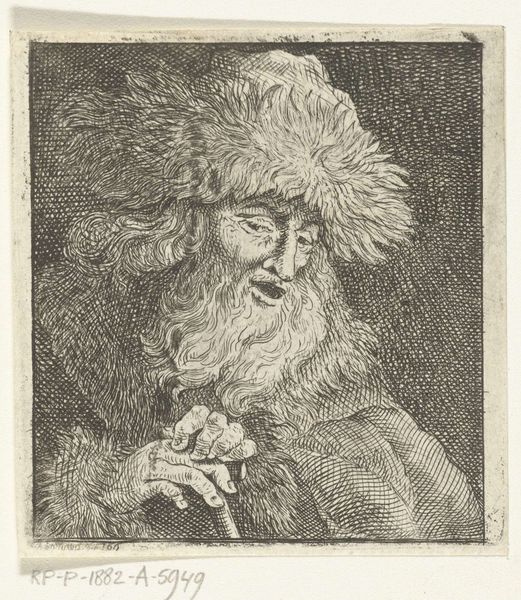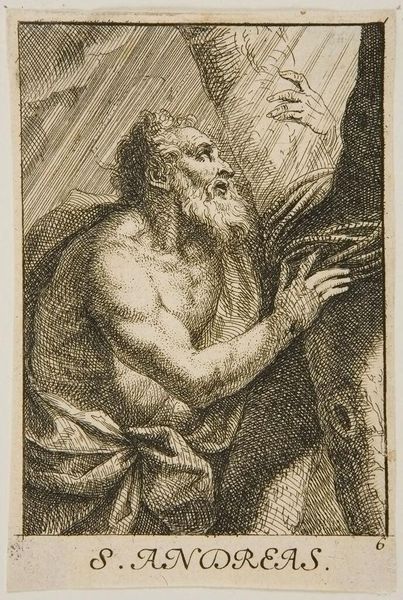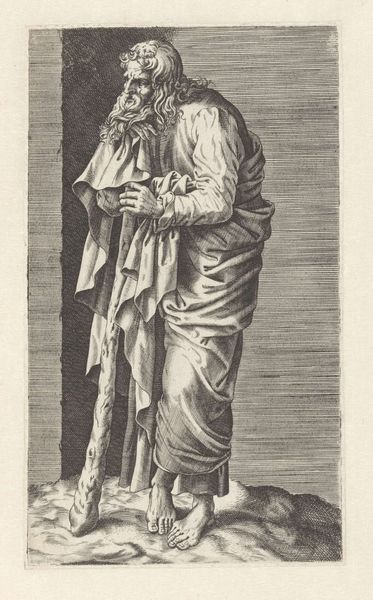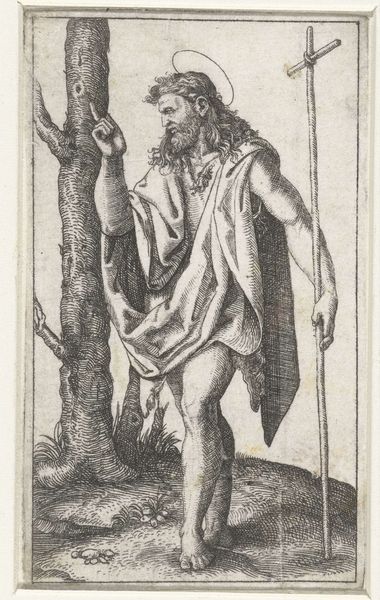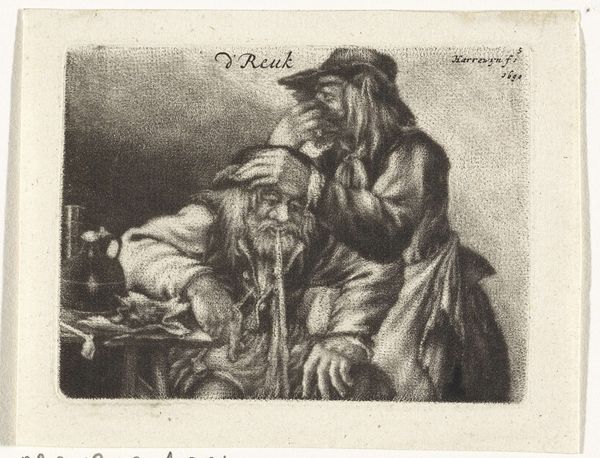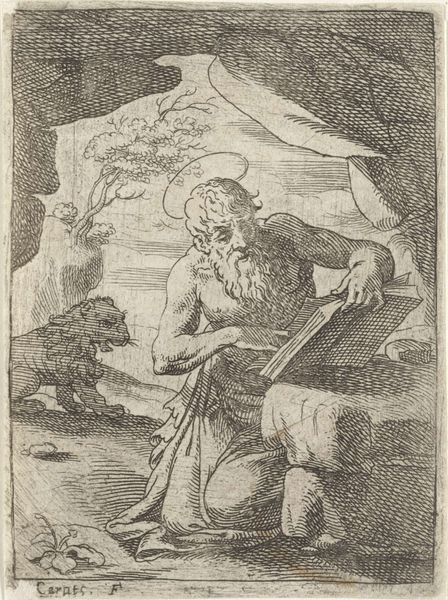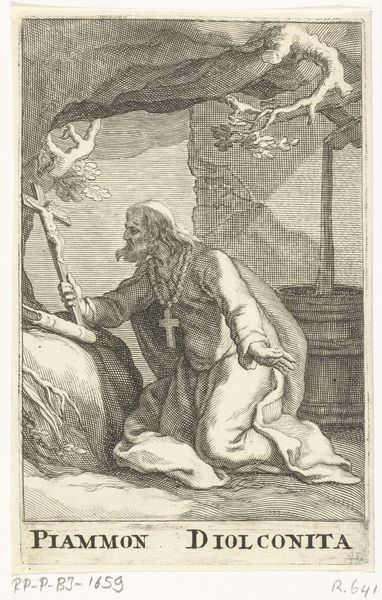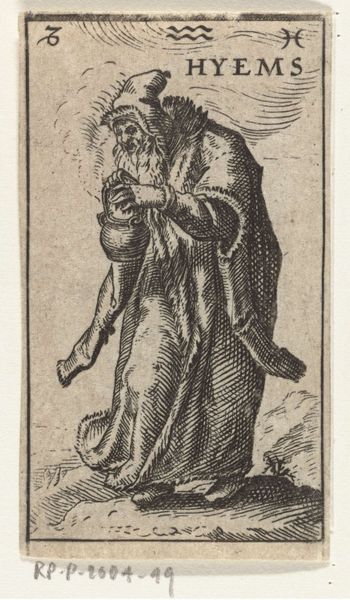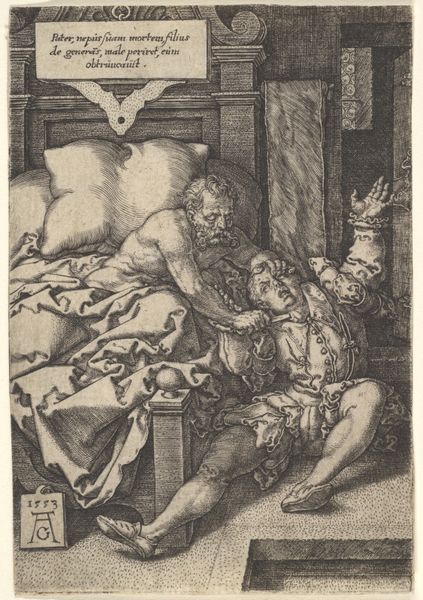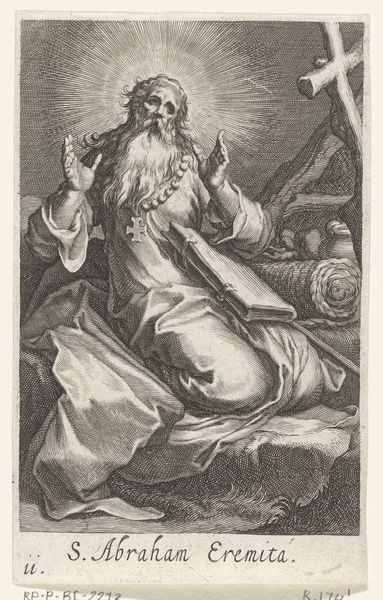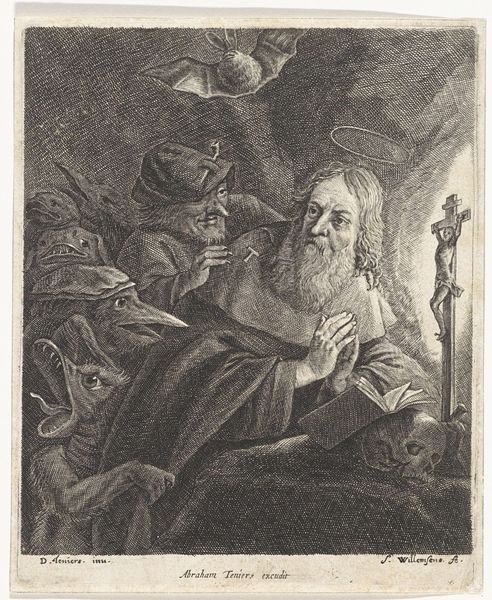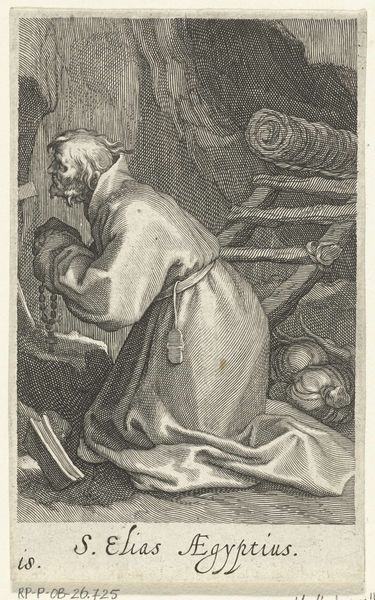
engraving
#
portrait
#
baroque
#
old engraving style
#
portrait drawing
#
history-painting
#
engraving
Dimensions: height 142 mm, width 90 mm
Copyright: Rijks Museum: Open Domain
Editor: This is "Heilige Onyphrius de Grote" made between 1590 and 1619 by Boëtius Adamsz. Bolswert. It's an engraving. I find the stark contrast and detailed lines really draw me in, creating a somber but reverent mood. What do you see in this piece? Curator: The image resonates with echoes of earlier iconography depicting hermits and saints. Notice how St. Onuphrius is depicted: covered in hair, kneeling in what appears to be a cave. These visual elements are not arbitrary; they tap into a pre-existing cultural memory of asceticism and withdrawal from society in pursuit of spiritual enlightenment. Editor: That makes sense, but I am curious about the figure standing next to him, bearing gifts of some kind. Is it an angel? What does it mean? Curator: Indeed it is. Angels often represent divine intervention and grace. In this image, the angel’s presence suggests a compassionate acknowledgement of Onuphrius’s devotion. The objects the angel carries, possibly dates and bread, become powerful symbols of sustenance – both physical and spiritual – in a barren landscape. Editor: So, the barren landscape emphasizes Onuphrius’s isolation and dependence on divine provision. Is that fair? Curator: Precisely! Furthermore, the dark cave juxtaposed with the angelic light could represent the internal struggle and the eventual illumination that faith can bring. Look how Onuphrius' gaze is directed upward; it signifies his connection with something greater. Editor: The engraving style definitely enhances that feeling, too. It's almost like the darkness is being pushed back by faith. Thanks for helping me unpack all those layers. Curator: It is my pleasure. The endurance of visual symbols to articulate narratives is certainly compelling.
Comments
No comments
Be the first to comment and join the conversation on the ultimate creative platform.
